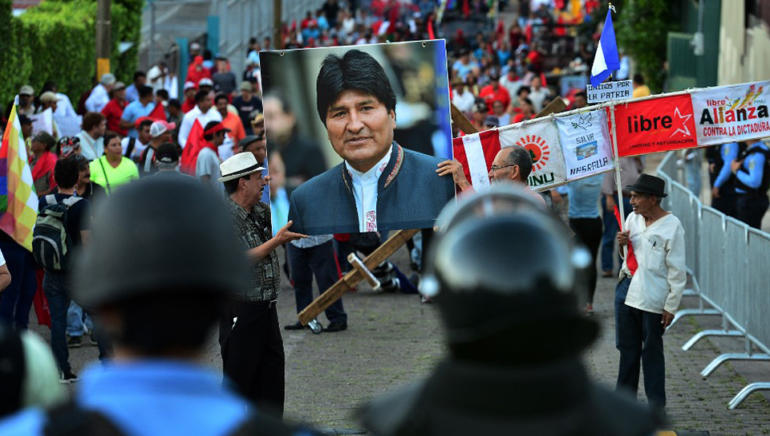Bolivia is preparing for new elections and ensured Evo Morales won’t be on the ballot.
Interim President Jeanine Anez signed the law that bars Morales from seeking another term.
At least 32 people have been killed in violence that erupted after last month’s disputed election.
CGTN’s Stephen Gibbs reports from La Paz.
After a turbulent month, a degree of normality has returned to the streets of La Paz.
The barricades that had threaten to cut off the city from food and fuel supplies have been removed. The traffic is back.
But everywhere, there are references to a man many assumed would remain in power here for years to come
Nobody, perhaps least of all Evo Morales – Bolivia’s first indigenous president – predicted the fast turn of events here.
In October he stood for re-election for a controversial fourth term, which was only permitted after a court declared that to not allow him to run would compromise his human rights,
Then the vote count following a suspicious surge of support
But the result was questioned by both his opponent and the Organisation of American States, which conducted an audit and concluded that there had been a “clear manipulation” of the computerized count.
Morales agreed to a recount. But amid mass protest she lost the backing of the police and the army. He left the country for exile in Mexico, saying he was fearing for his life.
His departure has left many Bolivians confused. “It was a coup. As far as I am concerned. There is no way of hiding it, there has been a coup” said Bernardo Perez, 86, a retired engineer.
But many younger Bolivians said they were happy to see Morales gone.
“Many of us are very aware of the good things he did, in his first five years of power. But afterward no: he generated a climate of hate”, said a young female protester, who asked not to give her name.
Bolivia is now run by an interim president – Jeanine Añez, a little-known right-wing senator who took over following Morales’ departure.
In Congress, on Sunday a majority agreed to hold new elections within 120 days. The plan was backed by Morales’ own party and includes a provision that prevents him from standing.
 CGTN America
CGTN America
 Members of the Libertad y Refundacion (LIBRE) party hold a demonstration in support of Bolivian ex-president Evo Morales, in Tegucigalñpa on November 22, 2019.
ORLANDO SIERRA / AFP
Members of the Libertad y Refundacion (LIBRE) party hold a demonstration in support of Bolivian ex-president Evo Morales, in Tegucigalñpa on November 22, 2019.
ORLANDO SIERRA / AFP
